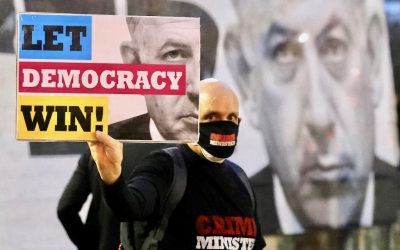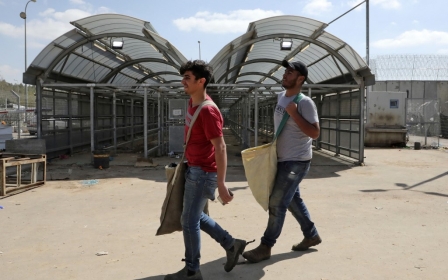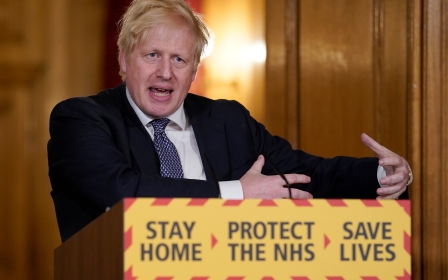Israelis protest against Netanyahu-Gantz coalition on eve of top court hearing

Hundreds of Israelis demonstrated on Saturday against a coalition government agreed between Prime Minister Benjamin Netanyahu and his former election rival Benny Gantz as the country's top court was preparing to examine the deal.
The Supreme Court was to meet for two days from Sunday to consider whether to block the agreement on the basis of eight separate petitions arguing that the deal was illegal, AFP said.
The case could force another election in Israel, where Netanyahu, a right-wing premier in power since 2009, and the centrist ex-military chief Gantz have already faced off in three inconclusive polls in less than a year.
Late on Saturday, about 1,500 people rallied in Tel Aviv to protest against the coalition government, but maintained the rules of social distancing to fight the spread of the novel coronavirus.
Professor Anat Admati, an economist at Stanford University, joined the protest. "We're seeing the situation exploited for the sake of a wasteful government and to give power to a man under criminal indictment. People with power often forget who gave them that power, and that is the definition of corruption," she told Haaretz.
Smaller demonstrations against the proposed unity government were held in several other cities.
It was the latest in a series of Saturday-night protests against the unity government between Netanyahu and Gantz, who is currently the speaker of parliament.
After failing to form a viable governing coalition in Israel's divided 120-seat parliament, the two leaders agreed last month to a power-sharing deal aimed at averting a fourth election.
The deal will see Netanyahu serve as prime minister for the first half of a three-year term as he faces trial on corruption charges, which he denies, with Gantz taking on the premiership in October next year.
Netanyahu was in January formally charged with bribery, fraud and breach of trust, becoming the first Israeli premier to be indicted in office.
His trial was due to open in March but has been postponed until 24 May.
Middle East Eye delivers independent and unrivalled coverage and analysis of the Middle East, North Africa and beyond. To learn more about republishing this content and the associated fees, please fill out this form. More about MEE can be found here.





